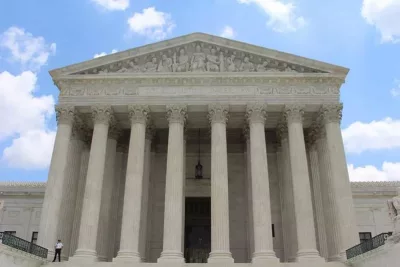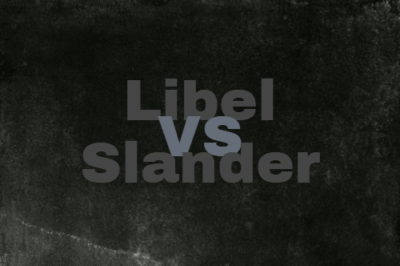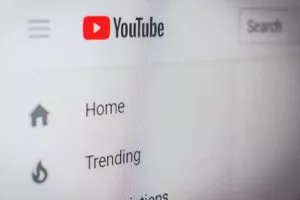
How to Report & Remove Defamation on YouTube
This page has been peer-reviewed, fact-checked, and edited by qualified attorneys to ensure substantive accuracy and coverage.
Are you the target of defamation on YouTube? Is a content creator spreading lies about you that are hurting your reputation or business? If so, there are several effective steps you can take to tackle the problem before it spirals out of control.
To report and remove defamatory content on YouTube, take the following steps:
- Stay calm;
- Do not respond to the defamation, harassment, or threats;
- Preserve evidence that you may need later;
- Submit a complaint to YouTube via their ‘Defamation Complaint Requirements’ page (For non-U.S. victims if appropriate);
- Flag the video while logged in from your YouTube account;
- File a defamation lawsuit to obtain a court order,
- Adjust your privacy settings; and
- Seek help from an experienced internet defamation attorney.
At Minc Law, we have helped countless clients with internet defamation and removed over 50,000 pieces of unwanted online content. Even if a defamation lawsuit is not suited to your situation, we can help you monitor and bolster your online reputation. We also offer digital risk protection services to help individuals and businesses monitor and protect their digital assets.
Video: How to Remove Defamatory Videos & Content From YouTube

In this article, we will describe how YouTube determines if content can be removed for defamation and how to report content. We will also discuss the consequences of posting defamatory content on YouTube – for everyone involved.
Let us help. Contact us for a free consultation with an intake specialist to help you explore your removal options and craft an effective strategy.Are you the target of defamation?
Steps to Report YouTube Content For Defamation
What is the First Thing You Should Do if You Are Being Harassed on YouTube?
If you are being harassed or defamed on YouTube, we recommend following the same steps you would take if you were being harassed anywhere online:
Stay Calm
If someone is cyberbullying or spreading harmful lies about you on YouTube, it can trigger strong emotions. You may be inclined to lash out against the YouTuber – but this could cause even more damage to your online reputation.
Take a few deep breaths and allow yourself to calm down before you do anything else.
Do Not Respond
Once you have calmed yourself, remember that it is not wise to respond to defamers.
Responding to defamation can potentially drive more attention to the defamatory video and trigger the further dissemination of the material – this social phenomenon is known as the Streisand Effect.
In most circumstances, responding to a cyberbully only causes more problems.
Preserve the Evidence
Before you report or block the defamatory YouTube account, you need to preserve evidence of the defamation or harassment. This might include downloading or recording the video so that you can later prove (if needed) that the video was defamatory.
If the video’s description also includes defamatory statements, screenshot them. You may also want to collect and screenshot information about the defamer’s profile like their screen name and email address.
If you are interested in utilizing more advanced screen capture and preservation software tools to preserve evidence, we recommend using Visualping or Page Vault.
Report the Abuse to the Service Provider
YouTube enables users to submit a complaint, but there is more than one option to reporting abusive or illegal behavior.
You can also flag a YouTube video to report any content that violates YouTube’s Guidelines. The flag in the toolbar under the video by clicking the “…” icon. This will bring up an option to “Report” which you will want to select.
Adjust Your Social Media Privacy Settings
Once you report the YouTuber, we recommend adjusting your privacy settings on YouTube and other forms of social media.
Maximize privacy settings to limit what others can find out about you publicly. This will also make it more difficult for others with bad intentions to view your content.
Video: How to Protect Your Privacy on Social Media

Seek Professional Support & Guidance
If your matter is serious, causing financial harm, and disrupting your life, you should contact an experienced internet defamation attorney.
An experienced internet attorney can help you analyze your options and determine how to best handle your specific defamation or harassment issue. They may also get in touch with law enforcement if the YouTube content violates the law.
Who Can Report Defamation & Harassment on YouTube?
In general, anyone can report abuse on YouTube, but it helps to have a YouTube account and a valid email address. You can submit a YouTube complaint if you are the target of abuse or have a representative submit the complaint (like an attorney or guardian of a minor who is the target of abuse).
YouTube will even accept complaints from concerned citizens who do not have a direct relationship with the target of a user’s abuse.
How Do I Report Defamation on YouTube?
There are two primary methods to report defamation on YouTube:
- Submit a complaint form, or
- Flag a video.
It is important to note that Google owns and operates YouTube, so you will be directed to Google Support when you submit a complaint or flag defamatory content. Do not be alarmed!
Google is YouTube’s parent company, so YouTube’s complaint process matches that of Google. According to Google’s defamation support page, content that contains “untrue statements that harm another’s reputation or causes someone to be shunned” is defamatory and may violate the law.
They also recommend that you consider whether the defamatory video meets YouTube’s standards for removal under their privacy or harassment policies. Below, we explore how to report defamation, step-by-step, using both options.
Option 1 – Submit a Complaint to Google
YouTube provides a comprehensive guide outlining their ‘Defamation Complaint Requirements’ which explains all the information to include in your complaint. We recommend taking notes on these requirements or printing them to reference when drafting your complaint. It should help you strengthen your complaint and increase your chances of removing the defamatory content.
After you read YouTube’s complaint requirements, go to the YouTube “Submit a Complaint” page. This page directs you to select your country of residence from a drop-down menu to access the complaint form used for your country.
If you select, “United States” from the drop-down menu, you will notice there is not a link to a form, but rather an explanation of U.S. law. Specifically, YouTube cites Section 230 of the Communications Decency Act, explaining they are “not in a position to adjudicate the truthfulness of postings…and do not remove video[s]…due to allegations of defamation.
So, what should you do if you are a U.S. resident?
YouTube recommends pursuing legal action against the content creator directly. To learn more about legal remedies you can take, read the section in this post entitled “Can You Sue for Slander on YouTube?” In that section, I will outline the process of suing and obtaining a court order for libel or slander.
If and when you obtain a court order, YouTube asks that you forward the court order to:
YouTube, Inc.,
Attn. Legal Support,
901 Cherry Ave., Second Floor,
San Bruno, CA 94066
USA
Court orders may also be submitted to YouTube by emailing legal@support.youtube.com or fax: +1 650 872 8513.
However, before you pursue a court order for defamation, consider whether the YouTube content violates their privacy, harassment, or copyright policies. YouTube may remove content that violates privacy, harassment, or copyright guidelines without the need to obtain a court order (potentially saving you time and money).
Option 2 – Flag the Video
YouTube encourages users to flag and report any content that violates their Community Guidelines. To flag inappropriate content, you can report a video, playlist, thumbnail, link, comment, chat message, or a channel. Regardless of what type of content you are reporting, the flagging process follows similar steps:
Step 1: Make sure you are signed in to your YouTube account.
Step 2: Select the “…” more button located below the video, thumbnail, comment, or message.
Step 3: In the drop-down menu that appears, select “Report.”
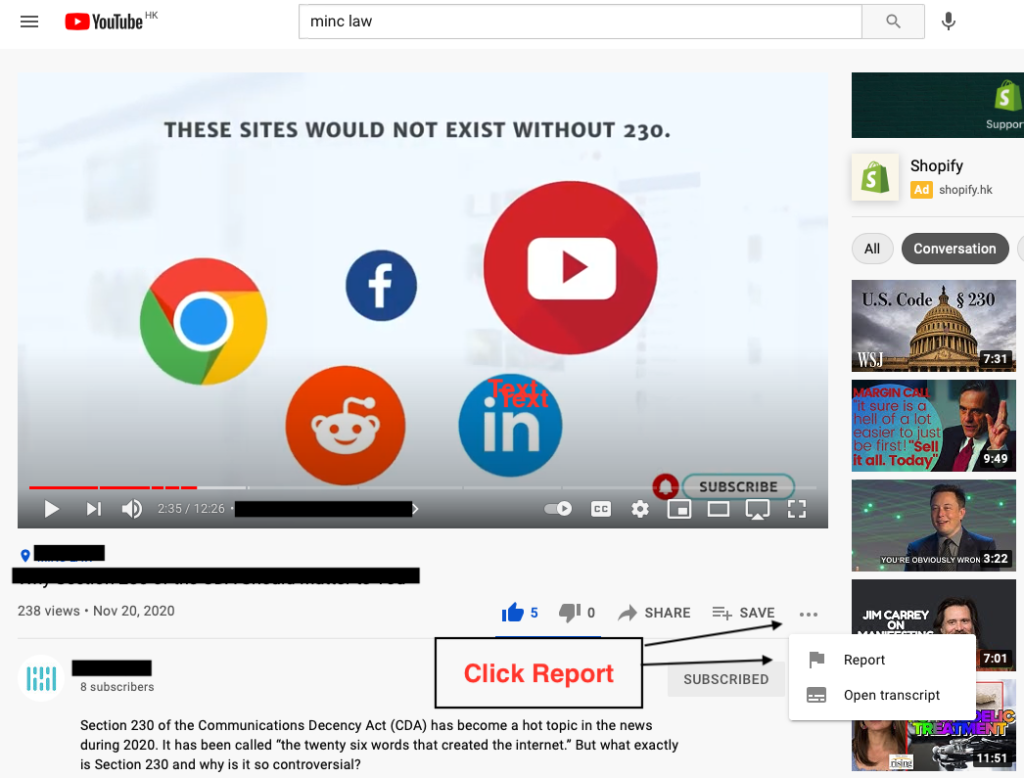
Step 4: If you are reporting a page, go to the channel page, click “About,” then select the “Report” option next to the flag icon.
Step 5: Select the best reason for reporting the video (i.e., what guideline is the video violating?)
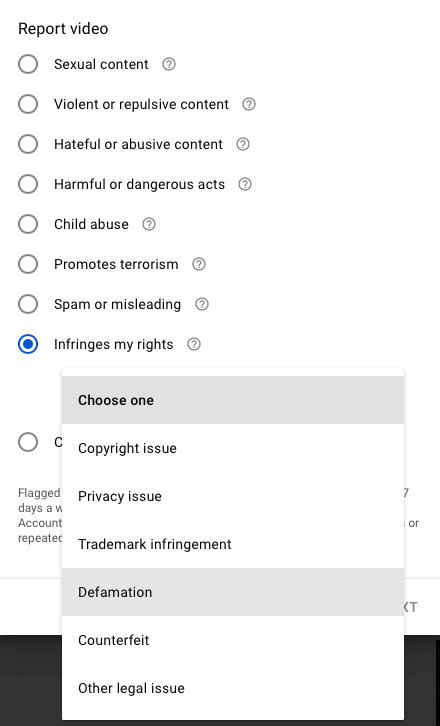
Step 6: Provide additional details to support your claim, like a timestamp for the inappropriate content or a description of how the content violates YouTube guidelines.
How YouTube Determines If Content Should Be Removed For Defamation
YouTube’s current guidelines indicate that they will not judge on their own what constitutes defamation. In a way, they are refusing to referee legal disputes between their users and deferring to the court system.
This is perfectly legal due to Section 230 of the Communications Decency Act – YouTube does not have to arbitrate or get in the middle of legal disputes between users.
In that case, who is liable for removing defamatory content from YouTube?
Who is Liable For Online Anonymous Defamation?
Section 230 of the Communications Decency Act protects internet service providers, like YouTube, from lawsuits based on content published to their platforms by third parties.
Video: Why Section 230 of the CDA Should Matter to You

In a word, YouTube cannot be held accountable for content posted by its users. However, a content creator who posts unlawful content can be held liable for what they post.
When Can You Sue an Internet Service Provider Like YouTube?
In general, you cannot sue an internet service provider (ISP) like YouTube for defamation and most civil torts. But there are some limited exceptions to this rule.
An ISP cannot claim legal immunity in situations where:
- The ISP edited a published statement, and
- The edits materially alter the statement’s meaning, and
- The altered statement is then defamatory.
ISP’s may also be held liable if:
- They create or develop illegal activity, or
- They promise to remove content and then fail to do so.
For further reading on why you generally cannot sue an internet service provider, please read our article by attorney Dan Powell ‘Can I Sue Google?’.
Why is Someone Who Posts a Video on YouTube Possibly Liable For a Defamation Lawsuit?
Just because YouTube is typically not liable for defamatory content posted to their platform does not mean everyone is immune from legal repercussions. The content creator who posted defamatory content can be sued and held liable for their unlawful content.
If you are defamed on social media, you should consider all the options at your disposal. Filing a defamation lawsuit is one option for getting defamatory YouTube content removed, but it is not your only option.
An experienced internet defamation attorney can help you weigh out your options and determine which strategy is best based on your specific circumstances.
How Does YouTube Determine If Content Should Be Removed For Defamation?
Technically, ISPs like YouTube have complete discretion when considering whether or not to remove content. In our experience, YouTube generally disfavors removing allegedly defamatory content unless it is extreme in nature or obviously false.
YouTube will typically uphold their own community standards, including removing content that endangers children, contains nudity, shows suicide or self-injury, violence, hate speech, firearms, or illegal goods. If the defamatory content violates any of the other community guidelines, it may be wise to flag the content for one of the other violations.
However, if the content is purely defamatory, YouTube refuses to remove the content, or the abuse is ongoing, you may need to opt to pursue a defamation lawsuit. Defamation lawsuits can be costly and time-consuming, but they are the only way to obtain a court order requiring the removal of defamatory content if you absolutely need to get a video removed.
What Are Other Reasons That YouTube Will Remove Content?
As mentioned above, YouTube will also remove content for a variety of reasons other than defamation. If you are experiencing online harassment, cyberbullying, child pornography, or revenge porn – you might be able to get the YouTube content removed by other means.
Here is a list, with links, of content that violates YouTube’s Community Standards:
- Impersonation,
- Spam, deceptive practices, and scams,
- Child endangerment,
- Nudity and sexual content,
- Suicide and self-injury,
- Harassment and cyberbullying,
- Harmful or dangerous content,
- Hate speech,
- Violent criminal organizations,
- Violent or graphic content,
- COVID-19 misinformation,
- Content featuring firearms, and
- Sale of illegal or regulated goods.
YouTube will also remove content that infringes your copyright (copyright infringement). Something many people do not realize is that copyright protection is automatic, and you do not need any official documentation to show that you have intellectual property rights for certain content.
For instance, if someone shares a photograph that you have taken without your consent, they are infringing on your copyright (you have a copyright for photos you take!). If you discover that a YouTuber has stolen a photo you took without your consent and used it on their channel, you can submit a copyright takedown request.
Another, less-than-obvious form of content that YouTube will remove is content intended to impersonate you or your channel. If someone creates a YouTube profile, channel, or content masquerading as you, you should notify YouTube that you are being impersonated. The best way to report impersonation is to:
- Navigate to the fake channel,
- Click “About,” and then
- Select, “Report.”
What is the Definition of Illegal Hate Speech?
Hate speech is not just offensive, it takes matters a step further – inciting hatred and encouraging violence. YouTube strives to be an inclusive, safe space for creators and viewers alike and will not tolerate content that constitutes hate speech.
According to YouTube’s hate speech policy, content that dehumanizes, glorifies violence, uses slurs, claims that others are inferior or that some groups are superior, or spreads conspiracy theories about groups of people will fall under hate speech.
YouTube has a detailed list of content that violates their hate speech policy, which is worth reviewing if you feel you have been a victim of hate speech.
In a nutshell, hate speech is content that encourages violence against groups or individuals based on the following attributes:
- Age,
- Caste,
- Disability,
- Ethnicity,
- Gender identity and expression,
- Nationality,
- Race,
- Immigration status,
- Religion,
- Sex/gender,
- Sexual orientation,
- Victims of a major violent event and their kin, and
- Veteran status.
Consequences of Online Defamation on YouTube
YouTube defamation stands to hurt everyone involved. Victims of defamation can experience serious, life-altering consequences. The victim can experience disruptions in their personal life, like the loss of friends and other significant relationships, depending on what lies are being spread by the defamer.
A defamer that says a particular person is a cheater or pedophile, for instance, can cause irreparable damage to the victim’s marriage, family, and friendships. Victims also experience career and business losses – like losing their job, income, or even their business. Often, defamation leads to intense feelings of shame, and shame is a particularly destructive emotion.
Defaming or shaming someone on social media can also have negative consequences for the defamer. Shamers can face backlash and might become the target of defamation themselves. If the defamatory content and online shaming go viral, the defamer may not be able to back-track and retract their content.
Depending on the nature of the content, YouTube can strictly penalize content creators – by removing the content, demonetizing a channel, or removing the channel altogether. Beyond that, content creators can be sued. However, lawsuits can be both costly and time-consuming.

Is it Libel or Slander if You Are Defamed on YouTube?
This is a bit of a tricky question, so it is probably best to review the definitions of defamation, libel, and slander.
Defamation is a false statement, made to a third party, that causes damage to another person’s (or entity’s) reputation. Libel and slander are the two primary forms of defamation.
Libel is a false statement that is written or “fixed in a tangible medium.” Libel is defamation (a false statement that harms another’s reputation) expressed in writing. For instance, if your local print newspaper publishes an article falsely claiming that your business has been shut down due to a fraud investigation, they are defaming you in the form of libel.
Slander is defamation published orally. If, for instance, your friend Charlie overhears Arnold telling Betty that you are a convicted pedophile (and you are not), Arnold is slandering you.
YouTube is a unique platform that opens the door for both libel and slander to occur simultaneously.
Take the example I provided about Arnold and modify it a bit. If Arnold publishes a YouTube video saying that you are a convicted pedophile, he is committing slander when he utters the words aloud. But he is also recording himself, fixing the statement in a tangible medium (a video recording), that can be played over and over, reaching far more than just one person. This means he is also committing libel.
Can You Sue For Slander on YouTube?
As explained above, defamatory YouTube videos can constitute both slander and libel. If you come across a live stream or YouTube video that makes a false statement that harms your personal or business’s reputation, you can sue for libel or slander. If the defamatory statement is only found in the written description or comments section of a video, you will have to pursue a claim for libel in a lawsuit instead.
There are important differences between filing a libel and slander lawsuit that could mean the difference in securing a favorable result or having your case dismissed. An experienced internet defamation attorney can help you determine which form of defamation best applies to your situation.
Can Someone Post a Video of Me on YouTube Without My Permission?
This is another tricky question. The answer depends entirely on the facts at play.
In general, there is nothing illegal (or civilly wrong) about posting a picture or video of another person on YouTube without their knowledge or consent. In fact, it happens all the time.
However, there are specific situations where posting a picture or video of another person, especially without their knowledge or consent, is illegal or can lead to civil liability.
False Light & Defamation
If a YouTube video contains defamatory language or presents you in a false light, the content creator may be able to be held civilly liable.
Invasion of Privacy
Also, if the video or image that’s displayed was captured in a private location (where you would have a reasonable expectation of privacy), this can constitute an invasion of privacy and it could be illegal as well if it was taken by means of trespassing on someone’s property.
For example, if your pesky neighbor flies their drone ten feet above your house, snaps a video of you sunbathing in a place that one could reasonably see or gain access to public locations, and posts it to YouTube – they probably can’t be held civilly liable. But if they fly the drone in your house through a window and start taking pictures, they can be held civilly liable and may also be breaking the law.
Likewise, if someone snaps a photo of you getting into the shower from outside your bathroom window, they are going to be in some trouble if they did so by sneaking over the fence onto your property. However, if the photo was taken from a public sidewalk and you accidentally left the blinds on your window open, there probably isn’t any civil or criminal wrong committed.
Misappropriation of Name & Likeness
Another example of when photos or videos can lead to civil liability is when they are used for commercial purposes without your consent.
Say you are a bit of a local celebrity – maybe you hold public office, or you are an influencer. If someone uses your photo, or a video of you, for purposes of advertising and promoting their product or service (trying to use your popularity for their gain), they likely are liable for misappropriation of your name and likeness.
Infringement of Copyright
As mentioned above, you have copyright protection for photos or videos you take or create yourself. If someone shares this type of content, you can submit a copyright takedown request directly to YouTube.
Revenge Porn & Exploitation of Minors
Additionally, photos that constitute revenge porn or show the exploitation of minors are highly illegal and should be reported to YouTube and law enforcement alike.
While sharing another person’s image on YouTube is typically innocent and legal in most normal cases, you should always aim to obtain consent if you are a content creator. This can save you the hassle of a lawsuit as well as YouTube penalties.
How to Sue For Libel & Slander on YouTube
Suing for libel and slander on YouTube can seem like an overwhelming and daunting endeavor but do not worry! To sue for defamation on YouTube, there are several key steps you should follow, such as:
- Determine if you have a valid defamation claim,
- Explore strategic considerations such as the correct (and most beneficial) jurisdiction to file your libel or slander suit in, and
- Comply with pre-suit filing requirements.
Determine You Have a Valid Defamation Claim
The first step toward suing for slander and libel on YouTube is to speak with an experienced internet defamation attorney. Many attorneys offer free consultations where you can find out if you even have a claim for defamation.
It is wise to find out if a defamation lawsuit is an option before you commit the time and money to pursue legal action.
Explore Strategic Considerations
Once you determine that you have a valid defamation claim, you will want to consider any defenses the content creator may have. There are many common defenses to defamation that may put an end to your lawsuit before you ever get to trial. Then decide where it is best to file your defamation claim.
Fortunately, in defamation cases, you have the option of filing a lawsuit:
- Where you live,
- Where the defendant lives,
- Where your business operates,
- Where your customers live, and
- Where you have experienced losses as a result of the defamation.
This opens the door to multiple jurisdictions, so you will want to strategically pick which state has the most favorable laws and is the most convenient location to litigate.
Comply With Pre-Suit Filing Requirements
After a deep look into the strategic considerations above, you can start the lawsuit process by complying with all pre-suit requirements like giving notice to the defendant. From there, you will need to draft a comprehensive legal complaint. Your complaint will need to include the following:
- Identification of the parties to the lawsuit (e.g., you/your business, the defamer, and any other co-defendants).
- Factual allegations that describe the defamatory content (with relevant attachments showing the content).
- A claim for relief (e.g., damages, removal of the defamatory content).
- A statement asserting your right to claim all available damages include actual, special, and punitive damages, out-of-pocket expenses, lost business, emotional distress, and injunctive relief.
- A request for a jury (although there may be some situations where you do not want a jury).
For further information on filing a defamation lawsuit, we recommend reading our comprehensive post ‘How to File a Defamation Lawsuit’ or watching our video on the topic below.
Video: How to File a Defamation of Character Lawsuit

Services That Can Help Remove Defamatory Content From YouTube
There are two key services targets of YouTube defamation can use to remove the libelous or slanderous content and media.
Work With Experienced Internet Defamation Attorneys
If you opt to file a defamation lawsuit, you should contact an experienced internet defamation law firm. Internet defamation lawyers are uniquely equipped to handle online defamation, launch digital investigations, and uncover the identity of anonymous posters and defamers.
Internet defamation lawyers are also well-versed in civil litigation, expertise you will want to maximize your chances of obtaining damages or a court order.
Utilize Online Reputation Management Services & Strategies
Online reputation management (ORM) companies may also be able to assist with unwanted YouTube content. ORM companies utilize a variety of tools to improve and protect your online reputation, even if you are unable to get a specific YouTube video removed.
ORM companies can help you set up alerts to monitor mentions of your (or your business’s) name and help you suppress negative search results. This might include the creation of your own website, blog, and social media accounts to “bury” the unwanted search results. In a word, ORM service providers may help you present the online image you wish to convey.
What Resources Does YouTube Offer to Help Combat Online Harassment?
If you are being harassed on YouTube, it is worth reading through YouTube’s harassment policy. If a particular content creator is continually harassing you, it may be best to report their channel for abuse.
YouTube’s Help Center offers information on their Community Guidelines, but if you prefer video tutorials, YouTube recommends checking out their Creator Academy course.
Our Firm Can Help Take Down Defamatory YouTube Videos
At Minc Law, we assist victims of internet defamation with all of their needs. If you have a valid defamation claim, we can help you file a lawsuit and obtain a court order against the defamer.
★★★★★
“Minc Law and Dan Powell worked closely with us to get defamatory material removed from social media sites. We would not have been able to get this accomplished without them. They are true professionals, and have the resources and skills to guide clients through the process to a successful resolution.”
Jen Duncan, March 4, 2022
We can also help get unwanted content removed – we have removed over 50,000 pieces of online content for our clients. Finally, we offer digital risk protection services to help victims of YouTube defamation protect, monitor, and restore their online reputations.
For more information or to schedule a free consultation with an intake specialist, contact us at (216) 373-7706 or complete our online contact form.


